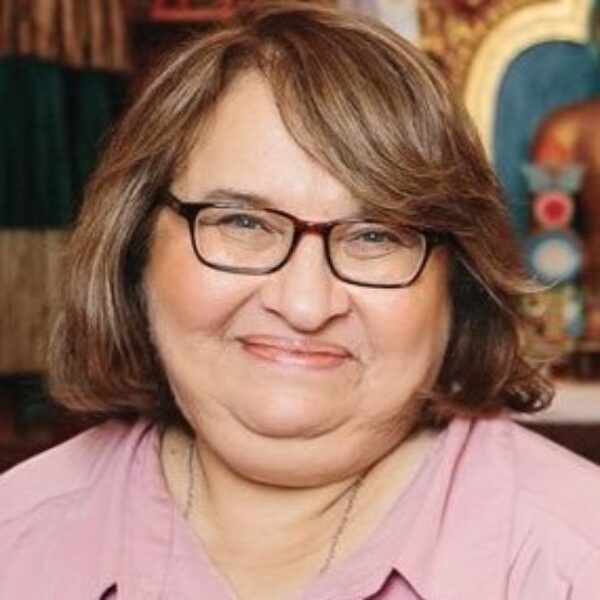A North Star of Integrity: Remembering Sayādawgyi U Paṇḍita
My teacher, Sayādawgyi U Paṇḍita, died on April 16, 2016. He was 94, yet he was so resolute, so indomitable, so mountain-like that his ever dying seemed unthinkable.
I first met Sayādaw in 1984, when we invited him to come lead a three-month retreat at the Insight Meditation Society, the center I co-founded with Joseph Goldstein in Barre, Massachusetts. Joseph and I had never met Sayādaw — but we heard he was a great teacher from friends who had — so we seized the opportunity to bring him to the U.S. and sit under his guidance. That turned out to be a pretty intense thing to do — to commit to open your heart to this new person, to be honest and vulnerable about your experience, to take to heart the suggestions he made rather than being wrapped up in one’s usual bluster and defensiveness: “What do you mean I should try that technique? Prove it to me first!”
For me, he was a great teacher in absolutely the most important sense: he taught me lessons that have endured, decades on. I still remember and share things he said to me during that retreat. Every once in awhile I wonder why I dwell on those stories; 1989 was such a long time ago! But they remain pivotal and illuminating experiences to this day.
What I felt upon hearing of Sayādaw’s passing reminded me of what I felt when I heard of my father’s death. My father died when I was well into my adulthood, but, to some extent, what I was largely mourning was the death of possibility. I was mourning the inchoate, unspoken, and unrecognized hope that the prince of my earliest childhood, the father I had known before my parents divorced when I was four, would return.
There was a place in my heart kept for the safe homecoming of that present, generous, energized man and not the alcoholic, suffering, mentally ill one reality brought back home to me when I was 11. I felt as though I’d never have a happy childhood. It took a long time after my father’s death for me to realize how much of my sadness at the time was bound to the death of that dream, and even more years to realize that it isn’t just nostalgia or wishful thinking that makes us hold on to those idealized images. It can also be the intimation of that which remains unbroken by life’s pressures and difficulties, alive within each one of us.
My feelings now seem simpler. It’s not that I don’t have regrets about my relationship with Sayādawgyi U Paṇḍita. I do. I wish I’d seen him more recently, that I’d gone back to Burma to practice again. But in many ways, it was a fully realized relationship. He had enormous and lasting influence on me — which is why I continue to tell those stories from 1984 — and not least because he taught me lovingkindness meditation. The development of lovingkindness and compassion became the cornerstone of my own practice and my teaching.
Now, when I feel into the new absence of Sayādawgyi U Paṇḍita in this world, I most profoundly feel the loss of his example of moral integrity. He was a man who completely walked the talk of his values. His entire life was committed to the principles he first learned when he became a Buddhist novice monk at the age of 12:
“Do not practice that which is harmful to yourself or others. Cultivate the good. Purify your mind.”

This was brought home to me when, at Sayādaw’s urging, we held our first retreat for young adults at the Insight Meditation Society. This was basically a course for teenagers in which Joseph Goldstein and I assisted Sayādaw in teaching meditation and talking about life values of ethics, non-harming, and generosity.
The course was Sayādawgyi U Paṇḍita’s idea, his vision, and his inspiration. I, myself, was filled with trepidation. We depended on a translator, and whether the teenagers heard the intricacies of the teachings or not depended on the translation.
The Buddhist moral code is often complex. Morality is based on one’s intention, and if you’ve blown it and made a mistake, you take take the ethical precept or make the resolution again, not wallow in guilt forever. But those weren’t the aspects Sayādaw was eager to transmit that week. Instead, absolute moral codes like “Don’t take drugs. Drugs are bad.” echoed in that meditation hall a lot.
I shuddered inside. These were very sophisticated teenagers, from a wide variety of backgrounds and with a wide variety of experiences. I feared the absolutism and simplification of Sayādawgyi U Paṇḍita’s message were going to be a big miss with them.
And I was right. But what I missed was how much they loved Sayādaw as a person and as an exemplar, even if they didn’t quite buy into all that he had to say. “He really walks his talk,” one participant told me. Another said, “He’s the kind of person who lives by what he says.” And another: “He’d rather die than be a hypocrite.” They fully felt his integrity and the wholeness of his being. They sensed no part of him was left out; he aligned behind living a life of goodness as he saw it, and offering that to the world. They loved him for the best of what he was: a north star reminding us of a commitment to a life well lived by the standards of non-harming, truthfulness, and rectitude.
His place in my own life was that of a north star. Now I am better navigating the treacherous waters of my own life. And it’s because of that more than anything that I mourn his passing, and am very grateful for having known him.

Share your reflection